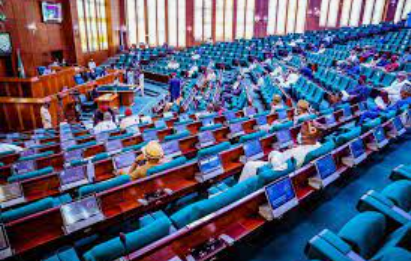The 2022 batch of graduate teachers from Ghana’s Colleges of Education have launched a determined protest against the Ghana Education Service (GES) over protracted delays in salary payments and the issuance of staff identification cards. These newly qualified educators, having endured nearly a year without their rightful earnings, converged at the GES headquarters in Accra on Monday, June 23, 2024, demanding immediate redress for their grievances. Their frustration stems from the apparent inaction of the GES despite numerous formal complaints lodged through established channels. The teachers contend that they have diligently followed all prescribed procedures, yet their pleas have been met with silence, pushing them to take more drastic measures. This standoff highlights a critical challenge in the Ghanaian education system, where bureaucratic bottlenecks and administrative inefficiencies can severely impact the livelihoods of educators and potentially compromise the quality of education.
The peaceful protest took a dramatic turn when police officers arrived at the GES headquarters and issued a three-minute ultimatum for the teachers to disperse. The teachers, resolute in their demands, refused to comply, leading to a forceful intervention by the police to remove them from the premises. This confrontation underscores the escalating tension between the aggrieved teachers and the authorities. Despite the forceful ejection, the teachers remained undeterred, vowing to continue their protest and escalate their actions to bring their plight to the attention of higher authorities. Their resilience reflects their deep-seated frustration and their determination to secure their rightful entitlements. The incident also raises concerns about the handling of peaceful protests and the potential for escalation when dialogue fails.
Despite the police intervention, the graduate teachers remained steadfast in their resolve. They declared their intention to spend the night at the GES headquarters, further escalating their protest. Their strategy includes intercepting Members of Parliament (MPs) to directly appeal for their intervention. The teachers believe that by sharing their ordeal with the legislators, they can exert pressure on the government to address their grievances promptly. This tactic underscores their determination to bypass bureaucratic hurdles and directly engage with those in power. It also highlights the teachers’ resourcefulness in utilizing available avenues to amplify their voices and seek redress. Their unwavering commitment suggests a prolonged struggle until their demands are met.
The core of the teachers’ demands centers around the issuance of staff identification numbers, a crucial prerequisite for salary processing within the Ghanaian public sector. Without these IDs, the teachers are unable to receive their salaries, leaving them in a precarious financial situation. They also demand full payment of all arrears owed since their official appointment in August 2024, which further exacerbates their financial hardship. These legitimate demands highlight systemic issues within the GES that need urgent attention to prevent similar occurrences in the future. The delay in processing these essential documents underscores the need for more efficient administrative processes within the education sector.
Beyond the immediate financial implications, the delayed salaries and lack of staff IDs have broader repercussions for the teachers’ professional lives. The lack of identification creates an atmosphere of uncertainty and undermines their professional standing within the education system. It also hinders their ability to access crucial services and benefits typically associated with their employment status. This predicament not only affects their personal well-being but also potentially impacts their morale and dedication to their teaching responsibilities, ultimately affecting the quality of education delivered to students.
As the impasse continues, the graduate teachers are planning a march to the Ministry of Finance and Parliament, aiming to draw national attention to their plight and compel the government to intervene decisively. They hope that by escalating their protest to these higher authorities, they can finally break the bureaucratic inertia and achieve a resolution to their long-standing grievances. Their planned action highlights the importance of these institutions in addressing public sector challenges and ensuring accountability within government agencies. The teachers’ persistent struggle underscores the urgent need for systemic reforms within the GES to prevent similar delays and ensure timely payment of salaries to educators, safeguarding the future of Ghana’s education system.














